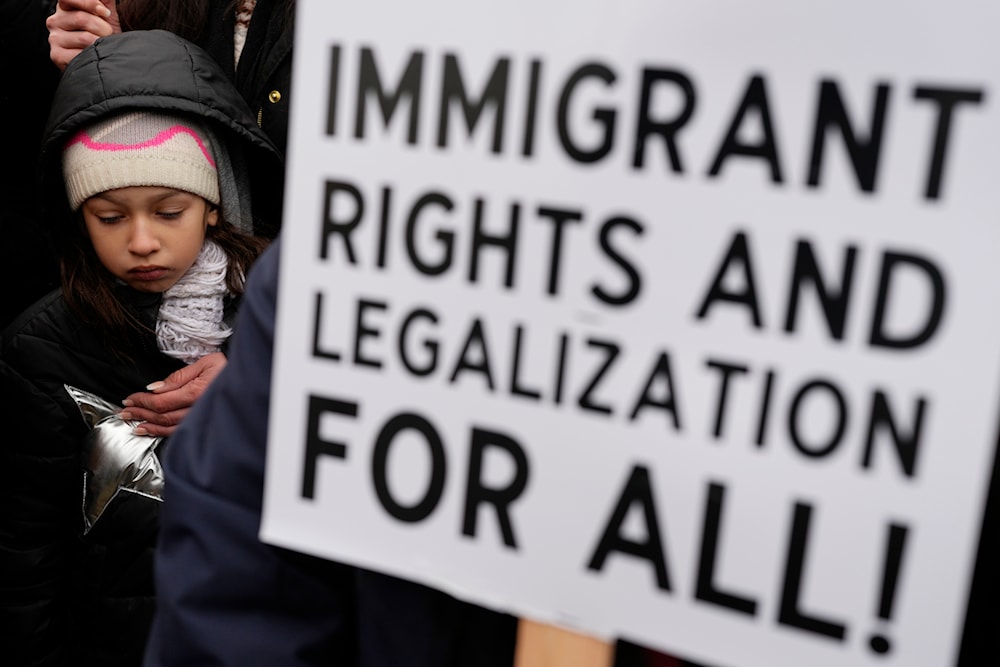Trump admin. sacks 20 immigration judges, offers no explanation
With 3.7 million cases pending, US courts face a backlog as the president pushes for increased deportations.
-

Nadia Ramirez, 7, stands with her mom during the Stop The Attacks on Immigrants protest in Chicago, Saturday, Feb. 8, 2025. (AP)
The Trump administration dismissed 20 immigration judges without explanation, a move that was confirmed by a union official on Saturday amid broader efforts to reduce the size of the federal government.
Matthew Biggs, president of the International Federation of Professional and Technical Engineers, said 13 judges who had not yet been sworn in and five assistant chief immigration judges were fired on Friday without notice. Two additional judges were dismissed under similar circumstances the previous week. It remains unclear whether these positions will be filled.
The US Department of Justice’s executive office for immigration review, which oversees the courts and its approximately 700 judges, did not respond to a request for comment on Saturday.
Immigration courts are currently facing a backlog of over 3.7 million cases, according to Syracuse University’s Transactional Records Access Clearinghouse, and asylum cases often take years to resolve. There is bipartisan support for adding more judges and support staff, though the Trump administration previously pressured judges to expedite case decisions.
Dive deeper
Earlier, the Trump administration replaced five senior court officials, including Mary Cheng, the acting director of the Executive Office for Immigration Review. Sirce Owen, the new leader and former appellate immigration judge, has issued several new directives, many of which reverse Biden administration policies.
Last month, the Justice Department ceased financial support for non-governmental organizations assisting individuals facing deportation, though funding was reinstated after a federal lawsuit from a coalition of non-profits.
The firings reflect two major Trump priorities: mass deportations and reducing the federal workforce. On Thursday, the administration ordered agencies to lay off nearly all probationary employees who hadn’t yet obtained civil service protection, potentially impacting hundreds of thousands of workers. These probationary employees generally have been on the job for less than a year.
Biggs said he wasn’t sure if the judge dismissals were meant to signal a shift in immigration policy but described them as part of a broader effort across the federal workforce. “They’re treating these people as if they’re not human beings,” he remarked. “It’s bad all around.”

 2 Min Read
2 Min Read








